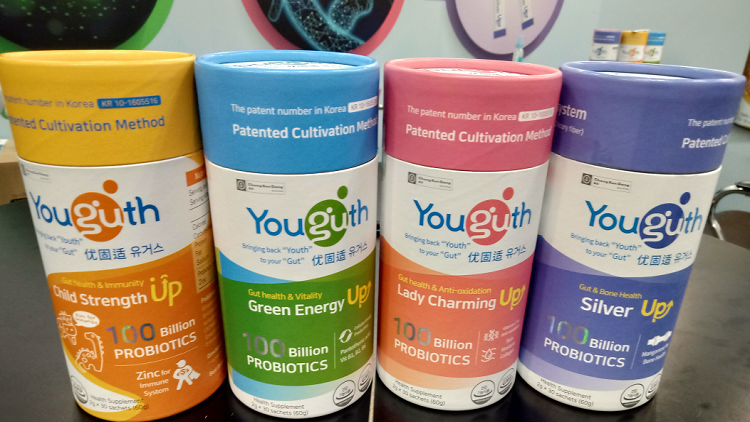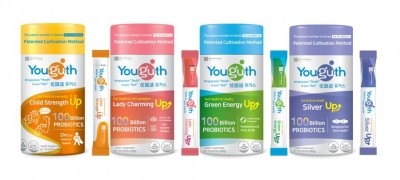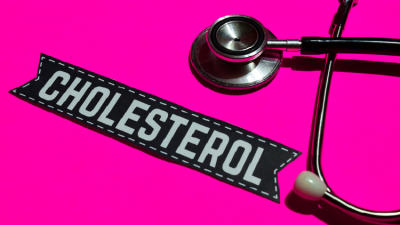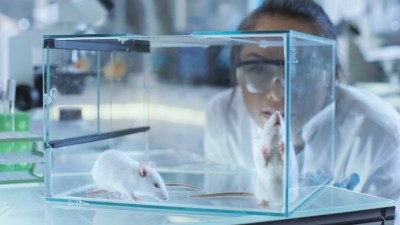Vitafoods Asia 2019
Probiotics for pharma: South Korean giant CKD Bio eyeing novel medicines with probiotic formulation

Its probiotics arm – CKD Bio – is currently selling four probiotic products under the brand Youguth.
Coming in powdered sachets, the probiotics are said to provide benefits for gut, bone and skin health, as well as boosting the body’s immunity.
Speaking to NutraIngredient-Asia at Vitafoods Asia held in Singapore, Seungho Lee, head of global healthcare marketing team at CKD Bio said the firm saw probiotics development as a stepping stone to develop new medicines.
“We are on the way to our final target, which is to make a medicine. We are developing these strains and with the nice functionalities achieved, we will go ahead with conducting medical clinical trials,” he said.
The firm is developing its own strains and is collaborating with the Institutes of Green Bio Science & Technology at Seoul National University to build an intestinal microbiome library.
It is currently studying the use of probiotics for nine other areas, including skin and cognitive health, addressing irritable bowel syndromes, and metabolic conditions such as liver and kidney health.
He revealed that probiotics formulation for addressing skin problems, specifically, atopic dermatitis-related symptoms, as well as reducing triglyceride levels in blood serum have completed.
These two probiotics products are expected to hit the consumer market by the end of this year.
The strains used are lactobacillus plantarum Q180 for triglyceride reduction and lactobacillus sakei probio 65 for alleviating atopic dermatitis symptoms.
He added that both formulations had undergone in vivo, in vitro, and human clinical studies.
In a trial involving 56 adults, the level of triglyceride in the blood serum of the treatment group was 15% lower than the control group, while their LDL-cholesterol level was also 13% lower.
“The formulation for both products are already finalised and we are at the stage of product packaging design.”
The firm is also expecting to sell other strains for gut health and anti-obesity in Q1 next year.
Present markets
Lee revealed that the firm had struck a bumper deal and would start to sell “a great deal” of probiotics in China before the end of this year, where it will focus on children’s and women’s health products.
Elsewhere in Singapore, it expects to sell the products in pharmacies such as Guardian and Watsons through its exclusive distributor this month.
It has been selling products into Singapore via cross-border e-commerce since last July.
Singapore is also the first South East Asian market that the firm had entered as it sees the country as a stepping stone into neighbouring markets, including Malaysia, Thailand, Indonesia, and the Philippines.
At home, the products have been available for two years.
Selling under the CKD Healthcare brand, the products are available in pharmacies, while products under the brand Youguth are sold online.
The “Youguth” brand of products each contains a CFU of 100bn probiotics, with a combinations of strains used. A strain used in all four products is lactobacillus plantarum CKDB007.
The strains are isolated from vegetables or newborns under two weeks old.
Lee said that probiotics for skin and gut health were the most popular in South Korea, and women’s health made up the most lucrative market, growing at more than 100% in the last two years.
Delivery system
To protect probiotics from the stomach acid, the firm uses two patented technologies – the proline and silk fibroin technologies.
Proline, a type of imino acid which is produced by various plants as a defensive material to survive in extreme conditions, is being fed to the probiotic culture.
Doing so increases the physicochemical-stress resistance of probiotics.
On the other hand, silk fibroin, a protein isolated from cocoon, is used to wrap around the probiotics.
With it, the probiotics can adhere to the mucin and intestinal epithelial cells, allowing it to proliferate in the intestines.
Such technology is usually used in drug delivery application.
Lee said the firm had used more than five years to develop the two technologies.



















